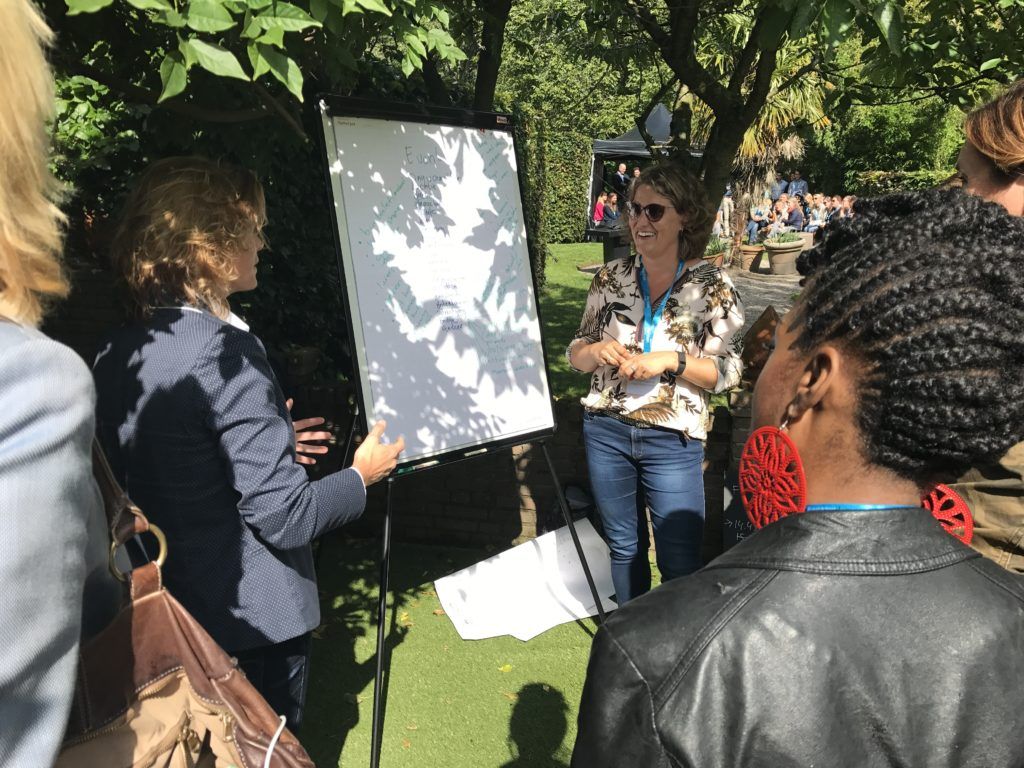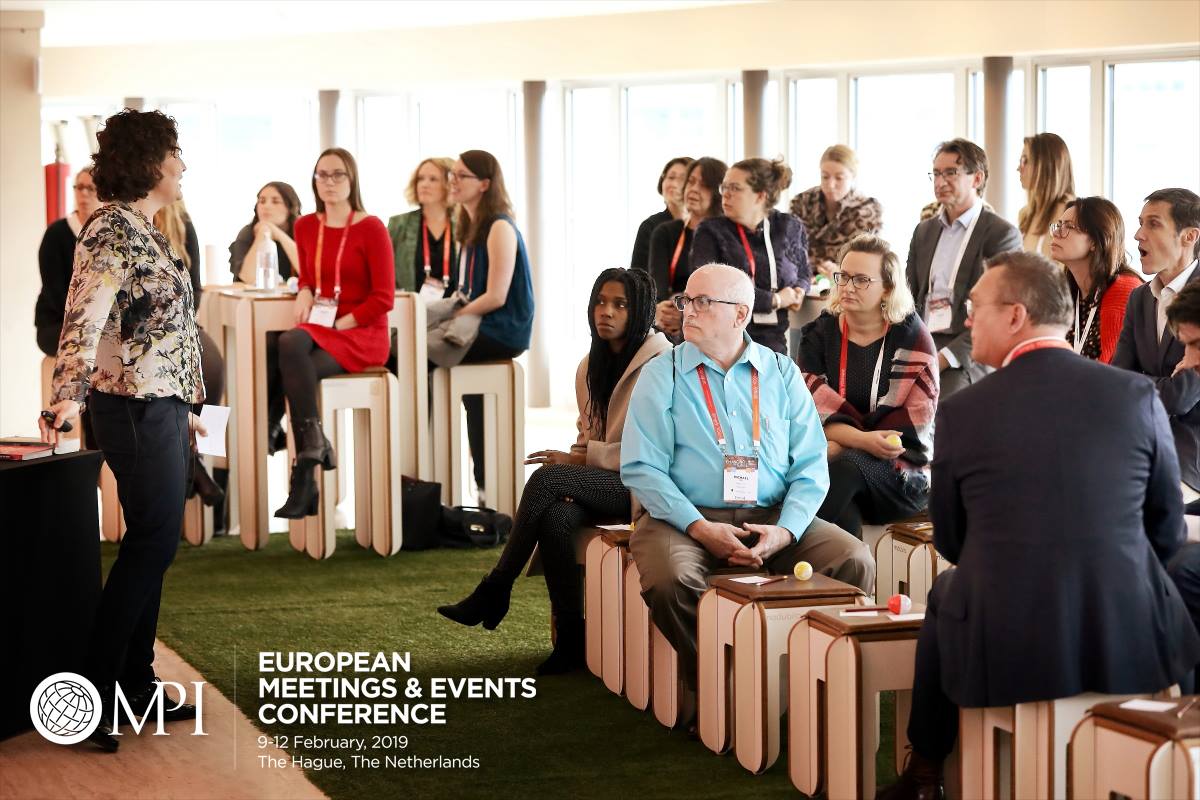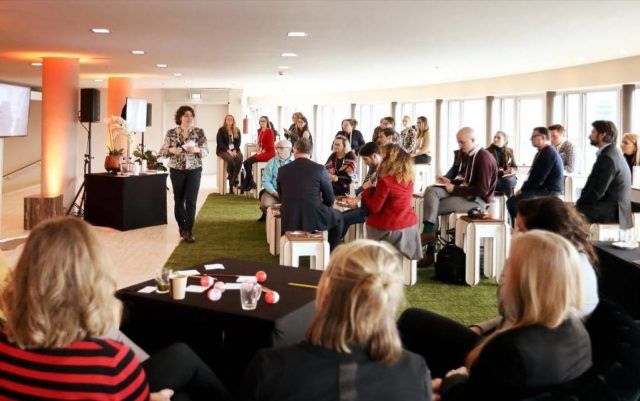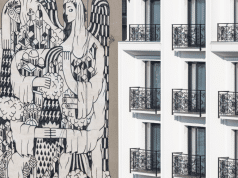Engaging introverts is very important, but it represents a challenge in our business where most of the time we focus on the extraverts. As a meeting designer and participant at events, I often experience that a lot of events are not suitable for introverted people; for the people who, in their natural way, want more reflection time, quietness, smaller groups, and in-depth discussion.
But to understand how to change this, we should take a better look at the differences between introverts and extraverts.

Photo credit: Hans Klaver
What is introversion?
‘Introversion is within personality psychology a scientifically accepted pool of the human personality spectrum. Where there is introversion on the one hand, and extraversion on the other. Although almost every person moves in the space in between, you will feel a natural preference for one of the two. Introversion is an inward-looking life orientation. Introverts often prefer introversion; they get energy from reflection and lose that energy through social interaction. With extraverts this is exactly the other way around. In short: an introvert loses energy in contact with others and an extravert gains energy from it.
Introversion is not a clinical diagnosis or disease, but a personality pole as well as an independent attribute.’ (Liesbeth Smit, 2018, p25-26).
Neurological differences
It is assumed that between 30-50% of the people are introverted. Research shows that there are neurological differences between the brains of introverted and extraverted people.
‘With extraverted people, information takes a fairly short route within the brain that runs mainly through the senses. Introverted people go through more complicated paths related to planning, remembering and problem solving. The brain of introverted people is stimulated more quickly than the brain of extraverted people.’ (Robert Haringsma, 2019)
Because of these differences there are also different preferences.
Preferences and qualities
Introvert people prefer to think and rethink their own topic from different angles and perspectives. And only when their story is complete, they go out and share it. They prefer written communication and listening instead of talking. When they have lack of energy or inspiration, introvert people go inside.
| Extravert preferences | Introvert preferences |
| Talk out loud to sort through their ideas | Think things through before speaking |
| Communicate freely with anyone about themselves | Openly talk about themselves with people they know and trust |
| Visibly gregarious, sociable | Visibly stay in the background |
| Prefer communicating on the telephone or in-person | Prefer to communicate in writing including e-mail exchange |
| Usually prefer getting input from as many people as possible | Prefer one-to-one conversations over meetings |
However, connection with other human beings is fine for both parties. And both need to share positive emotions.
Behavioural characteristics attributed to introverts are ‘thoughtful’ and ‘able to listen well’. They can observe and structure information. These are just some examples of their qualities. These are the qualities we really need in today’s world. And that’s why it is a pity if we miss them in our event design and in our outcomes of events.

Photo credit: Ramon van Jaarsveld / EMEC 2019
FIVE TIPS ON HOW TO INCLUDE INTROVERTS
So to help you to include introverted people in your audience, I give you five tips based on my own experiences.
Tip 1: Respect them
The most important tip: respect introverted people and do not try to turn them into extraverts. Do not put everyone in the same mold but make use of the gifts of the introverted person.
Tip 2: Prepare them
Let introverts get used to a new situation by preparing them. Before your event you can manage expectations by sending a clear invitation and a guest list.
Be specific about:
- the purpose of the meeting;
- the location (What is the venue message? Which behaviour is appropriate in this place?);
- the setting (active, interactive, listening mode);
- the role of the participant (bringing in ideas, being a listener, making decisions, et cetera);
- the content and the way a participant has to prepare it.
Tip 3: Ask for thoughts instead of opinions
If you manage to involve introverts in an interactive session, they can be very helpful because of their skills to organise information and their knowledge to bring in different perspectives and considerations.
One simple question made such a difference: do not ask introverts about their opinion but ask them what they think.
Tip 4: Give them time to think
As I said before, it is important to give introvert people time to think. They process information differently and often work with quite complex models in their heads. Instead of throwing a ‘Catch Box’ with a microphone to them and ask them to say their name and give their idea, it is more helpful to let them hand in their questions or ideas anonymously. Or at least let them write their ideas on post-it notes before sharing them.
Tip 5: Design White space
Make time and space for reflection. Think about meditation, a reflection walk, being quiet together in your program. Or design white space by giving one minute of silence after an exercise.
We used this ‘reflection tree’ during our three days Meeting Design Practicum in 2016. We had a special room for reflection. We started the first day with ‘our roots’ of the tree. On whose shoulders are you standing? Who makes you who you are? Who was important in your life? The next days we put ‘leaves’ in the tree, with outcomes of different sessions and at the end ‘the fruit’ of the tree, was our evaluation of the whole practicum.
Juup Laarman – de Kanter

Photo credit: Dennis Lieffering
Sources
- Susan Cain (2012) Quiet: the power of introverts in a world that can’t stop talking
Liesbeth Smit (2017) Ik moet nog even kijken of ik kan: de stille revolutie van de introverte mens
Interview Eline Sluys (21-12-2018). She coaches introverts with her company Elinesluyscoaching.nl https://www.depsycholoog.nl/introvert/ consulted March 10th 2019
Contact
If you want to react on this article in an introverted way you can use this email address: juupdekanter@gmail.com. Do you prefer to talk with me, you can call me +31654693556.














